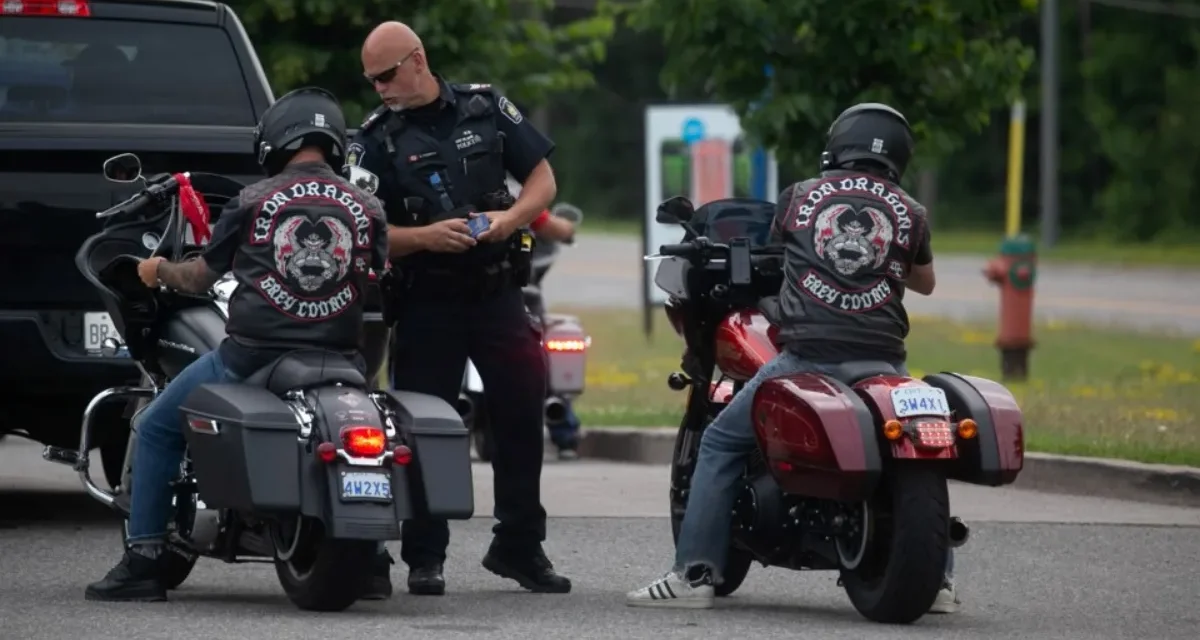Unfiltered reality like that of Scott Payne, the retired FBI agent who infiltrated the notorious Outlaws Motorcycle Club. Let’s take a ride through his remarkable journey and uncover what makes his story resonate with every true rider.
Who Is Scott Payne?
An ex-FBI agent with a beard, straddling a Harley like he was born on it. That’s Scott Payne—or “Scott Callaway,” the alias he used to infiltrate the Outlaws Motorcycle Club. For over 20 years, Payne lived a double life, diving into outlaw gangs not just to bust them, but to understand them. His mission? To decode the unspoken rules of a subculture where your patch is your pride and betrayal means a bullet.

Scott Payne Outlaws Motorcycle Club
Payne wasn’t some desk-jockey fed. He earned his stripes by blending into the biker world so seamlessly, that even seasoned Outlaws bought his act. Why? Because he got it. He respected the grind: the late-night rides, the loyalty tests, the raw camaraderie that makes clubs feel like family. But beneath the leather and grease, Payne was walking a tightrope. One wrong move, and he’d end up in a ditch.
Read: Brotherhood, Betrayal, & The Dark Side of Outlaw Motorcycle Club
Brotherhood, Betrayal, and Strip Searches at Gunpoint
The Outlaws MC isn’t your local weekend riding group. Founded in 1935, they’re one of the “Big Four” outlaw clubs (alongside the Hells Angels, Bandidos, and Pagans) with a rep for ruthlessness and a global footprint. Their motto? “God forgives, Outlaws don’t.”
During “Operation Roadkill” in Massachusetts, Payne lived the Outlaw life 24/7. Imagine swapping beers with guys who’d kill you if they knew your secret. Or getting hauled into a basement, stripped naked at gunpoint, while hidden wires recorded every tense second.
Payne’s story isn’t just about danger—it’s about the psychological toll of bonding with men he’d eventually betray.
Check: How Outlaws Motorcycle Club Shaped America’s Road Culture
The Dangerous Game of Infiltration
Going undercover in a biker club isn’t like infiltrating a drug cartel or a white-collar crime ring. The stakes are different. There’s no hiding behind a desk or a chain of command. If you’re exposed, there’s no calling for backup. Payne had to live the life, breathe the culture, and be convincing enough to fool men who’ve spent decades spotting fakes.
The deeper he went, the more he realized that the Outlaws operated under a complex code of ethics. Their world was built on loyalty, tradition, and an unwavering commitment to their brotherhood. It wasn’t just about criminal enterprises; it was about identity. For all the violence and illegal dealings, there was also a sense of family—a connection that made his job infinitely more challenging.
One of the most harrowing moments in his mission came when club members began suspecting a rat in their ranks. Payne recounts the tension of those days, knowing that a simple slip-up could mean the end—not just of his cover, but of his life. The pressure was relentless, and the paranoia ran high. Yet, through sheer grit and experience, he managed to maintain his cover and push forward with the operation.
The Fallout: Arrests and the Aftermath
When the operation concluded, law enforcement swooped in, arresting numerous Outlaws members and crippling a significant portion of their network in Massachusetts. Payne’s work was hailed as a major success, exposing the club’s inner workings and dealing a serious blow to their influence.
But his story didn’t end there. Unlike in the movies, undercover work doesn’t have a clean-cut finish. Payne had to disappear, change his life, and live with the weight of what he had done. Some might call him a hero; others might see him as a traitor to the biker code. But one thing’s for sure—his story sheds light on the reality of outlaw biker culture in a way that few others can.





